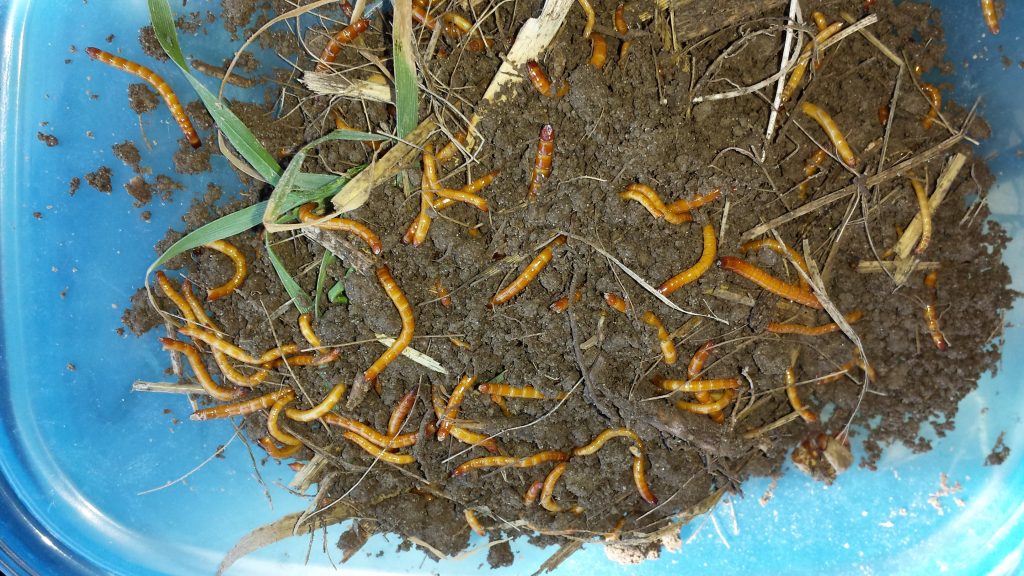By Helene Doughty and Tom Kuhar
Everyone is gearing up and planning for potato planting to begin soon! With two primary insect pests of great economic importance: Colorado potato beetles and wireworms, growers are sometimes perplexed on what the best option may be or looking for that new product that will solve all their insect problems.
COLORADO POTATO BEETLES:
No new products have been registered for Colorado potato beetle control for 2023. However, at-planting neonicotinoid insecticides are still working well in our area (thankfully!). Field trials at the ESAREC in 2021 comparing labeled at-planting insecticides yielded great results for Colorado potato beetle control, up to 56 DAP (Figure 1 and 2). Similar residual efficacy has been shown on commercial farms on the Shore as well based on previous assays from 2021.
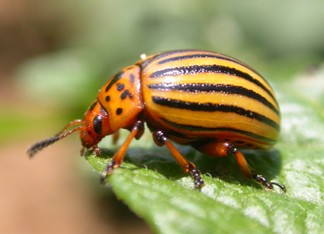
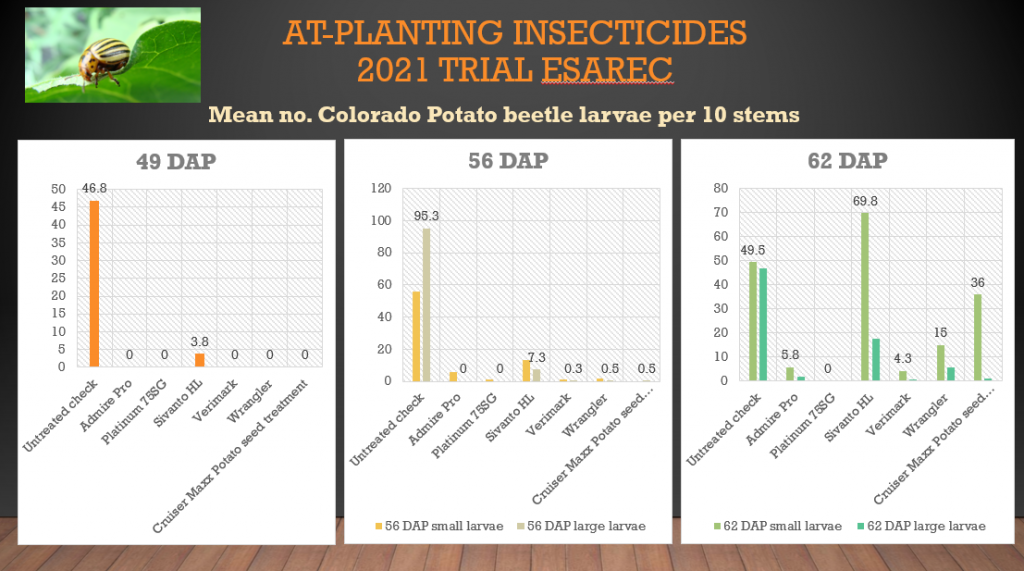
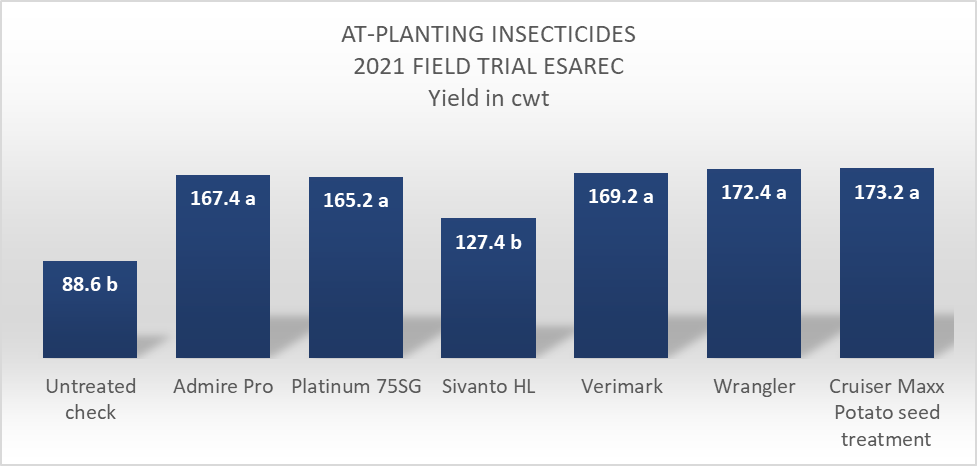
And for those pesky beetles infesting fields later in the season (likely from neighboring potato fields from the previous year) once the at-planting insecticide has worn off, there are still numerous options for foliar control (being mindful to rotate to a foliar insecticide in a different IRAC group) (Figure 3). A couple new insecticides with new mode of actions should be available later in 2023 or 2024, which have performed very well in our CPB efficacy trials; these include plinazolin a new Group 30 mode of action, and Calantha (a new RNAi insecticide that is highly specific to CPB and not toxic to any other organisms).
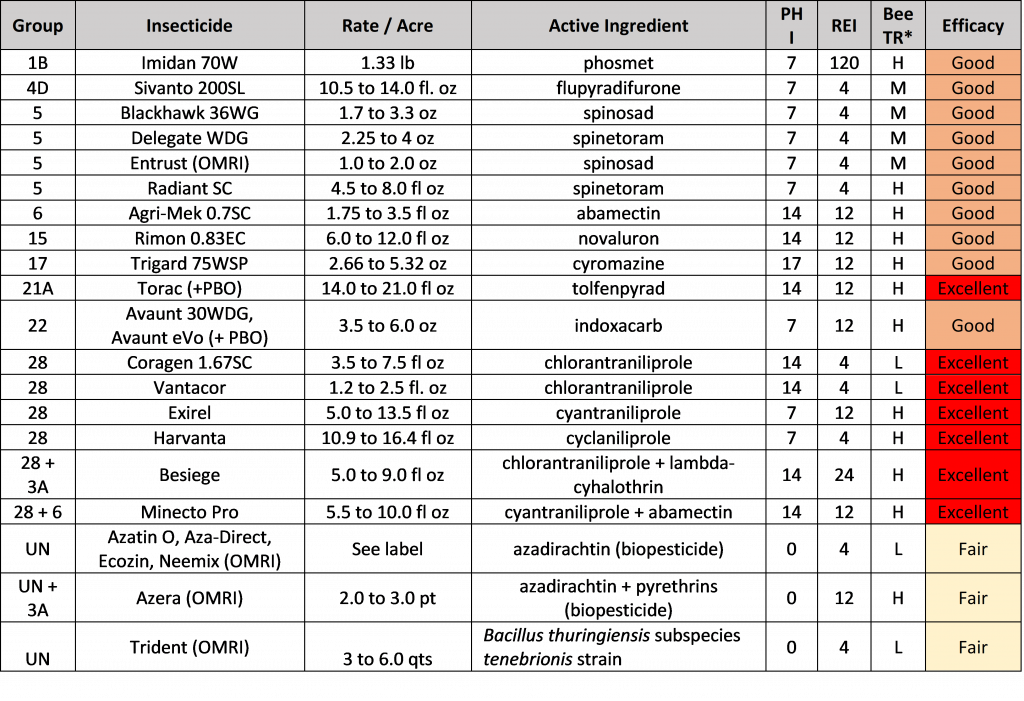
WIREWORMS:
Questions about wireworm control come back every year. With recurring problematic fields, growers are always in search of new options. Based on 15 years of research at the ESAREC, the combination of Regent (fipronil) with a neonicotinoid (thiamethoxam or imidacloprid) at planting still offers the best control for seedpiece protection. A new option is available in 2023 with a group 30 insecticide, broflanilide, currently marketed under the trade name Nurizma. We are looking forward to testing it as an at-planting insecticide in our potato field trials in the upcoming season. We are also interested in assessing the wireworm suppression ability of this same insecticide applied as a seed treatment to wheat cover crops. Research has shown that this can significantly reduce wireworm populations in a field for subsequent crops like potato.
More research work in the upcoming years will continue to focus on understanding the biology of this pest in its larval and adult stage as well as reduction of wireworm population in fields for potato production through seed treatments in rotational crops.
